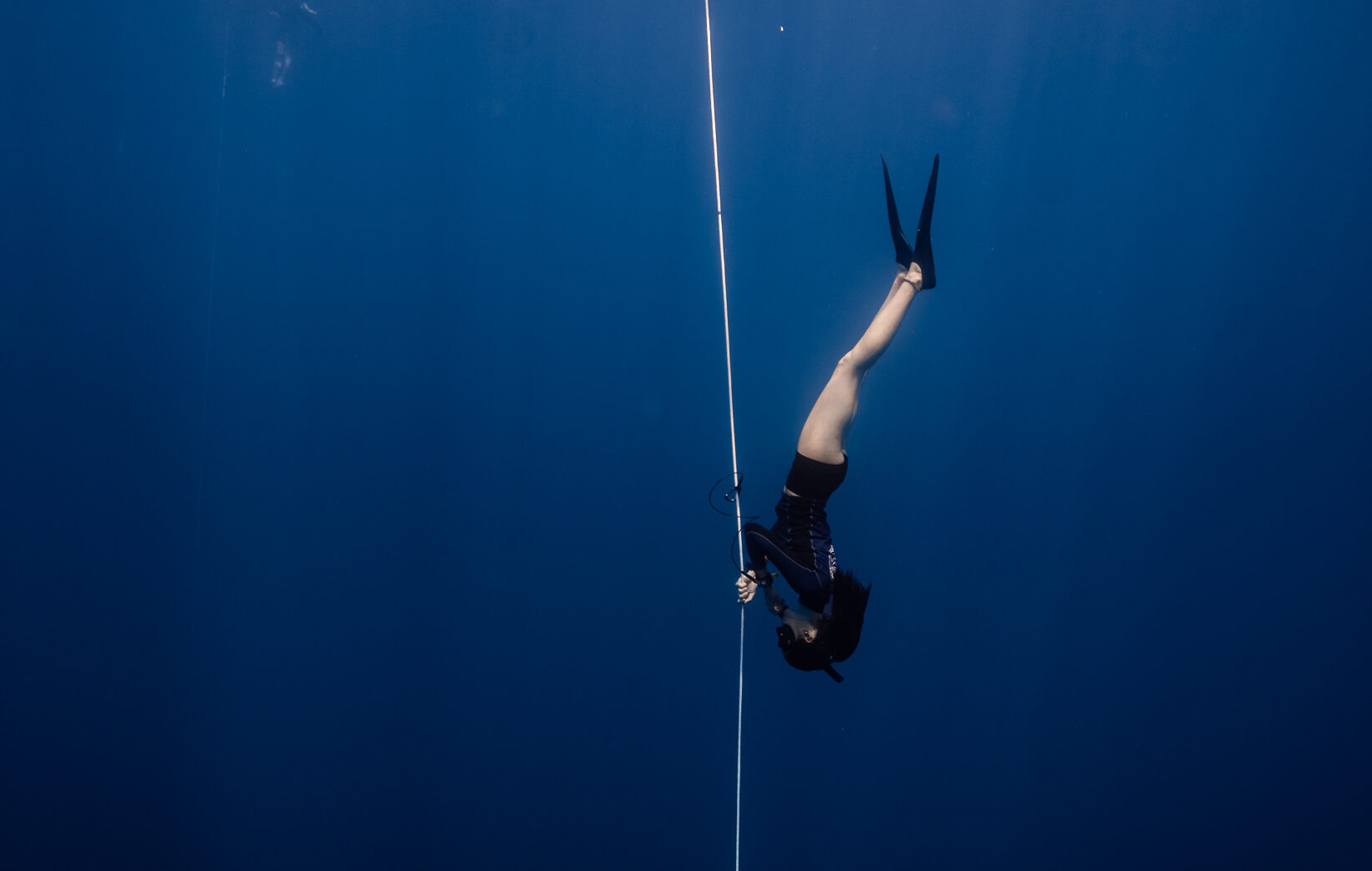
A recipient of the 2022 European Our World-Underwater Scholarship (OWUSS), Hannah is one of three global scuba-diving awardees funded each year by the watch brand Rolex. Winners of the scholarship get to spend a year travelling around the world to learn from, work with and dive with some of the world’s leading divers, academics and conservationists. On the road continuously throughout the year, scholars spend most of their time with the society’s friends, hosts, and coordinators around the world.
“It’s a really amazing opportunity, especially for someone like me who’s so fascinated with the underwater world.” says the 2022 NUI Galway Marine Science graduate, whose travels have already taken her to the Thailand, New York, Finland and Indonesia, with plans to head to the Antarctic, Chile, the Falklands and Vancouver in the second half of the scholarship year.
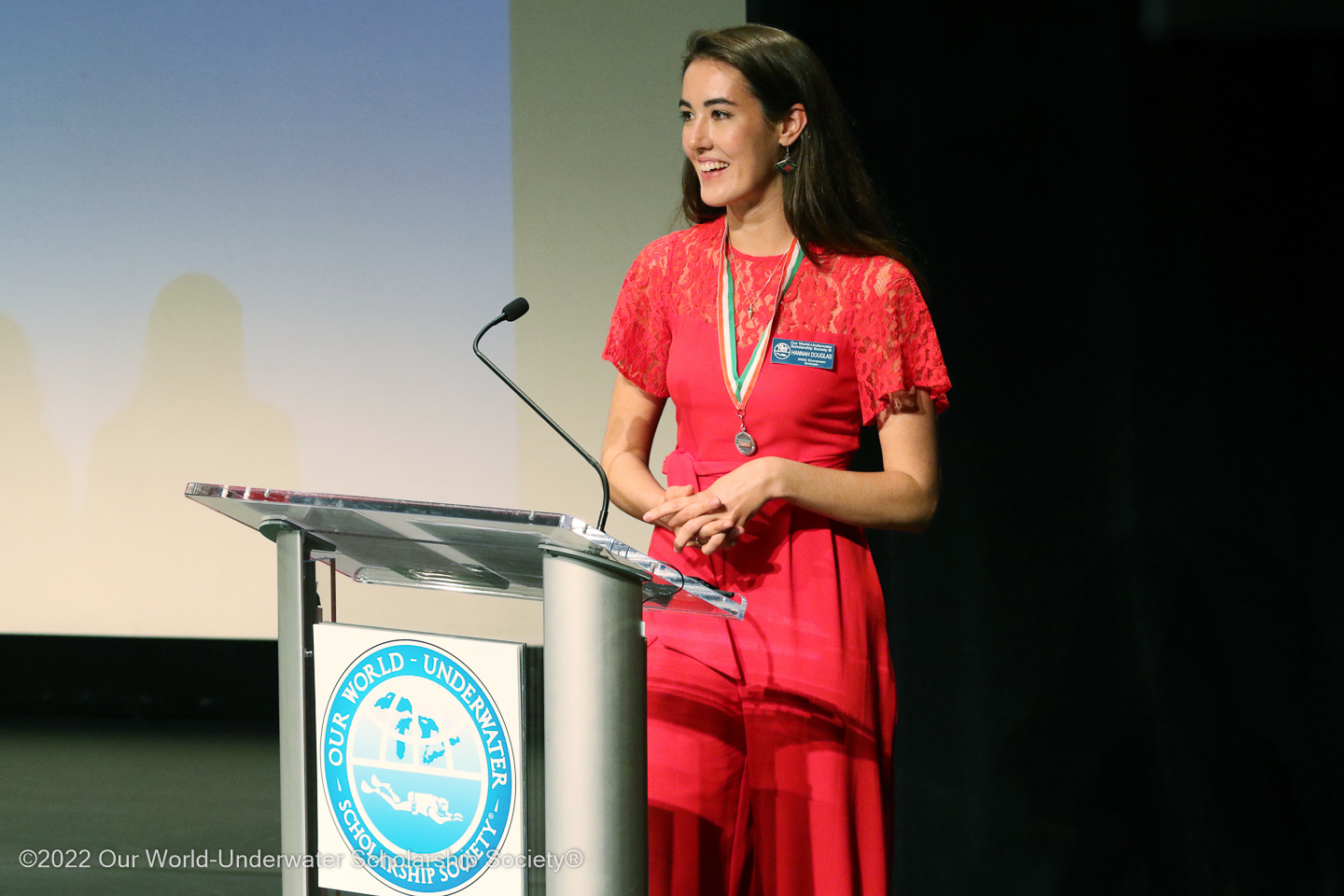
An avid scuba diver and yoga teacher from Wicklow, Hannah’s love for the sea began as a child, scouring the beaches for treasures with her brothers each weekend. “One of our activities was going rock pooling with a tiny net and a few buckets; it was always very exciting to discover all the creatures that we found washed up, such as Mermaid’s Purses; learning how the purse was the egg casing of a shark or a ray was quite an exciting moment.”
Hannah’s love for all things marine continued into her teenage years, taking on another form when she discovered a passion for scuba diving, completing her first ever open water diver course with Ocean Divers in Dun laoghaire at the age of 15.
With her eyes firmly on a life under water, after her Leaving Cert, Hannah completed her Rescue Diver training, then travelled to Thailand to gain her PADI Divemaster qualification, while also planting coral reef nurseries with a group of volunteers. She also trained as a yoga teacher in India around this time, a practice that has served her well in her diving career.
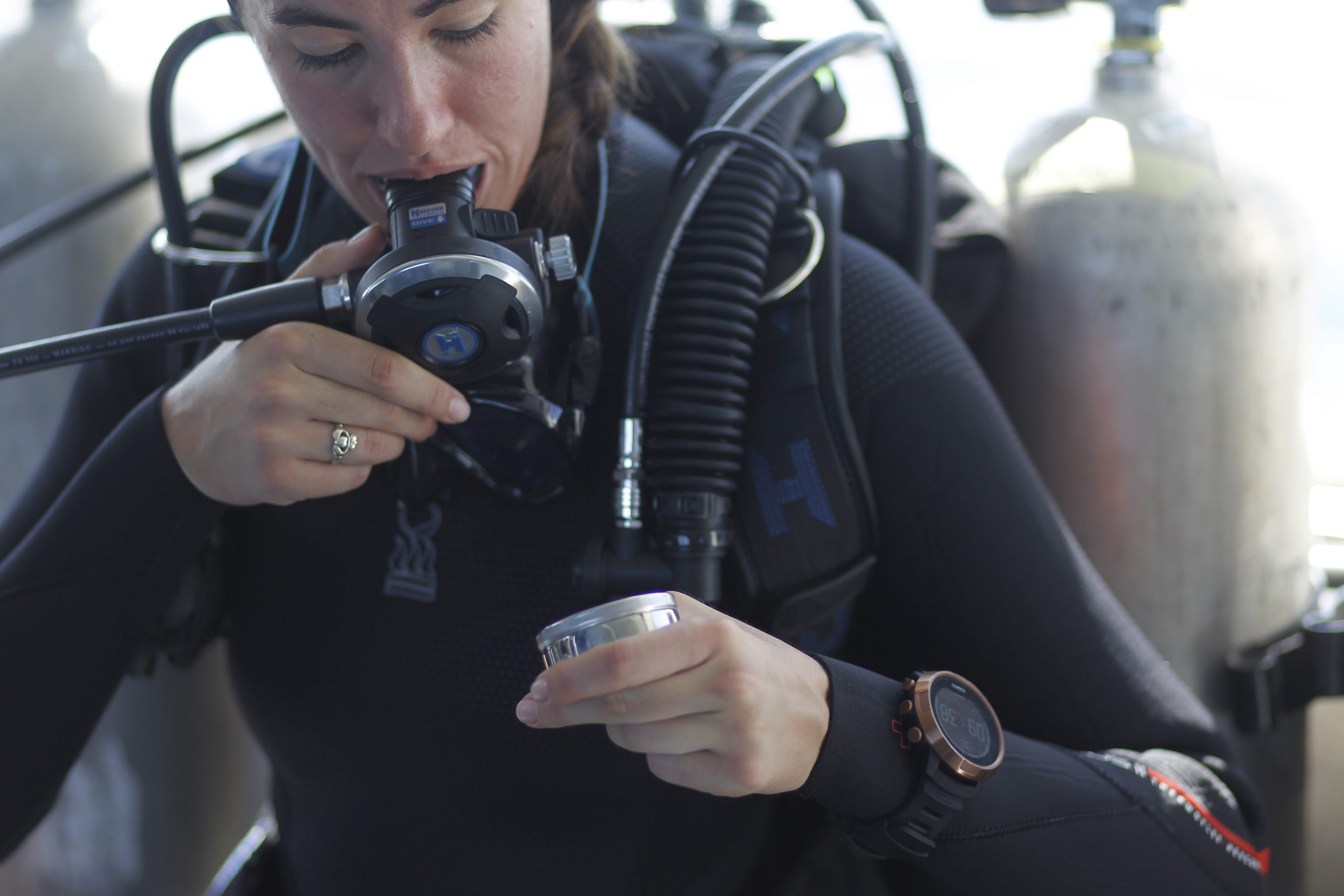
When it came to university, studying Marine Science was always going to be Hannah’s first choice, and University of Galway, with its reputation for marine sciences and its proximity to the sea, was the obvious choice. Keen to create connections wherever she could, she helped to restart the Marine Society at the university, organising weekly beach cleans, hosting talks by marine scientists and fundraising events for marine conservation charities.
“I am so grateful that I was encouraged to and got involved with a lot of clubs and societies. The experience I gained from being involved at a committee level really helped me learn about running an organisation and working as a team.
“That learning is something that you can’t necessarily do a course on, and it’s something that I’d really strongly recommend to anybody in college. That was a big learning outside of my degree that not everyone necessarily gets in university. And it’s really rewarding – it’s given me such confidence.”
In her final year project, Hannah set up her own research project, focused on Pachycerianthus multiplicatus (Fireworks anemones), and credits her supervisor Mark Johnson, the coordinator for marine science, for encouraging and enabling her to undertake this. “He was really great and open-minded and allowed me that space and support to research my own interests. To come out of university and be able to say that I’ve created and set up a research project is a really cool experience, and has helped me loads along the way as well.”
After an initial awards ceremony in New York, Hannah’s first diving trip as part of the scholarship was to Indonesia, where she discovered a new found passion – freediving. “It was something I’d never done before, but I got a real taste for and really, really enjoyed it”. She was delighted to discover the links between her two greatest passions – the underwater world and yoga. “Yoga has massive links with freediving – the breath work you do and the meditative headspace you need to get into are all really interconnected.”
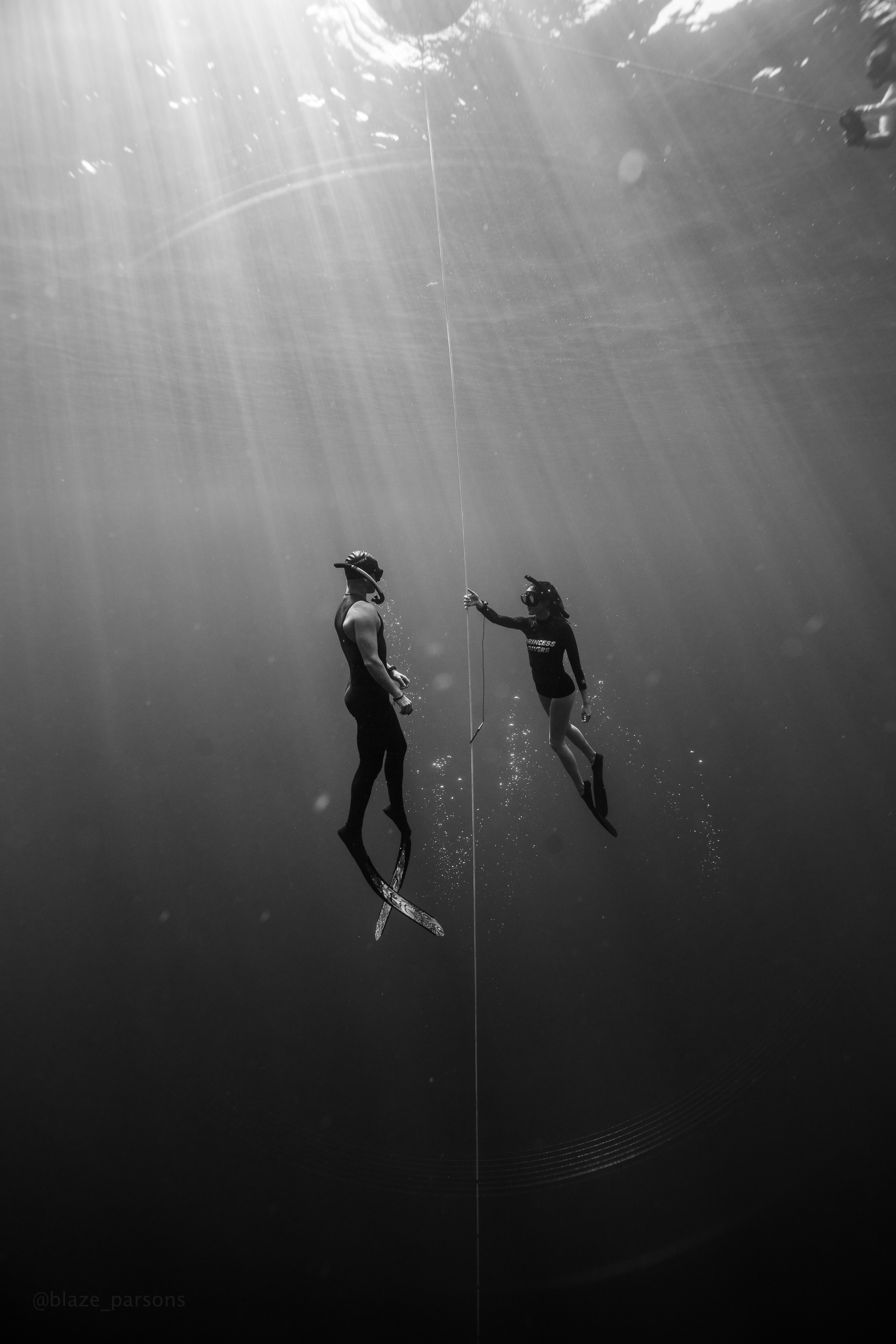
The free diving expedition was followed by a two-week underwater photography workshop, where Hannah got to utilise one of her other passions. “Macro photography is a big interest of mine. With a macro lens of an underwater camera, you can focus on something that’s really just like the size of a hair to the naked eye, and then you see all this ornate detail, like eyes and colour. Northern Indonesia is a great place to do that, because they have what’s called ‘muck’ dive sites, which, from a distance, looks like mud, but it’s actually black volcanic sand, and when you look closely, you see it’s just full of life. You can see tons of different Sea Horses and Pipefish, Nudibranch, which are like ocean Pokémon. It’s amazing. On this one expedition, we saw a male seahorse convulsing, with these little things coming out of him. We think he was giving birth, which is incredibly rare to see.”
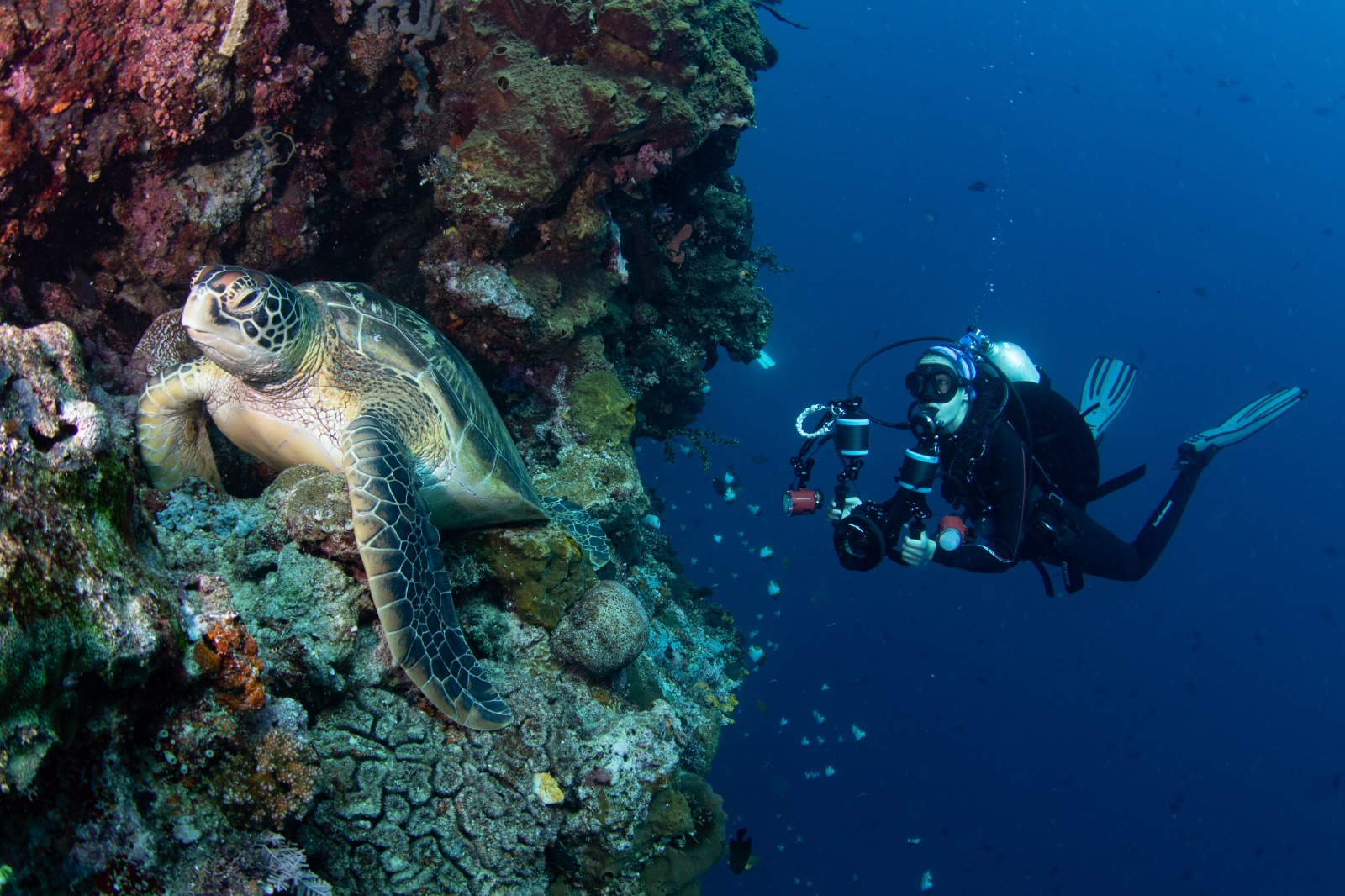
From Indonesia, Hannah headed to the Cayman Islands, where she trained with Kirk Krack, a global leader in the field of diving and exploration, and a consultant for the Avatar movie sequels.
“He’s the guy that taught all of the actors how to hold their breath while underwater. The movie was shot wet for wet, so any scene that you see underwater, were actually filmed underwater – it was really great to talk to him about it. We were incredibly lucky to get to work with him; it’s those kinds of people that the scholarship has allowed me to meet, and it has been phenomenal.”
Finland came next on the year-long itinerary, where she completed a scientific diving training course, followed by a commercial diving course in Cork and a marine mammal observer course here in Galway.
Looking to more land-based activities at the end of year, as a recipient of the George Moore Scholarship, Hannah hopes to undertake an MSc in the Institute of Resources Environment and Sustainability in Vancouver, where she plans to delve further into marine policy and global affairs.
“I thought about getting into the law, because, although my passion lies in science, I have had some frustration in that. I feel like some of the problems in the world aren’t necessarily due to a lack of scientific understanding, but to the lack of laws that would ensure people do what they should be doing.”
Until then, this extraordinary year of experience and learning continues with diving trips to South America, a scientific expedition to Antarctica, followed by Patagonia and Chile, then an expedition to the Falkland Islands, and the West Coast of America.
“I’m a firm believer in ‘Be the change you wish to see’. For me, that’s a global awakening to the awe and beauty of our oceans and a wave of policy change to protect it.”
